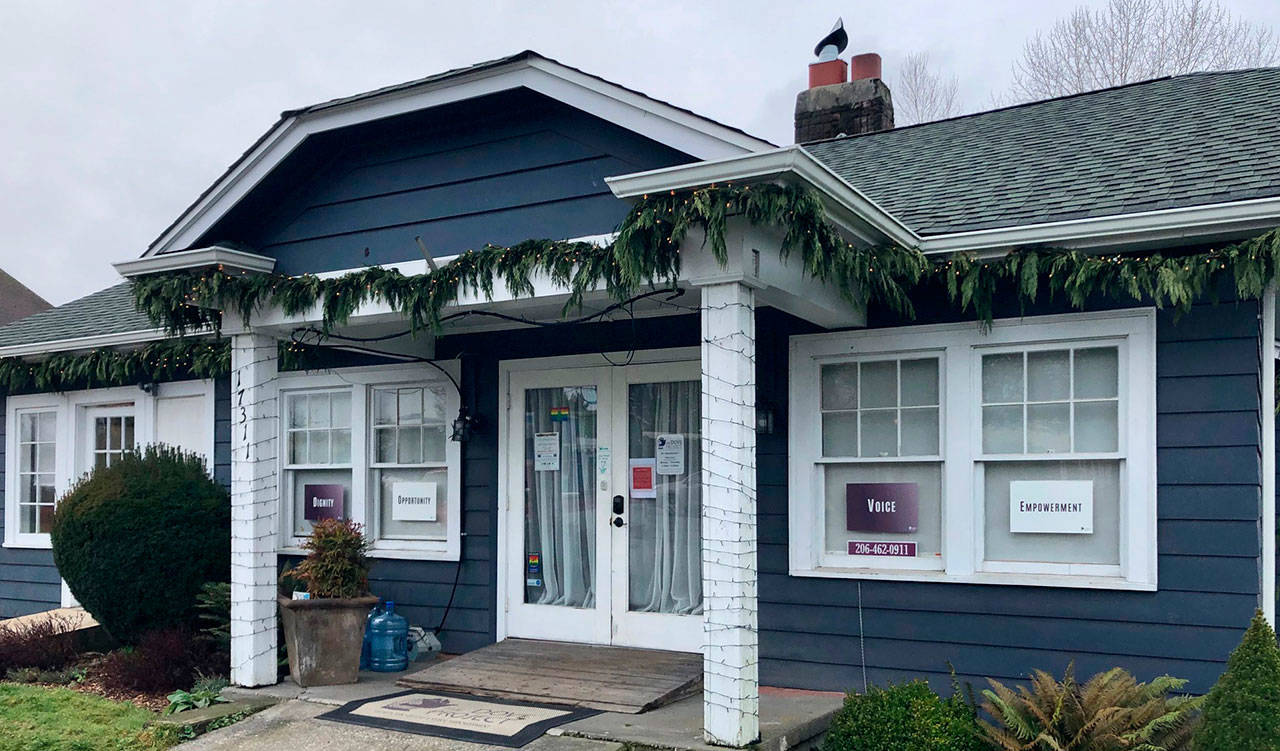Vashon Island’s Dove Project, the island’s only domestic violence and sexual assault agency, made the shortlist of one of nine nonprofit organizations in the King County region to receive a portion of a new $6 million levy created in part to support survivors of domestic violence and sexual assault through mobile advocacy.
Through 2023, Dove will receive $211,500 through The Veterans, Seniors and Human Services Levy (VSHSL) administered through the Department of Community and Human Services (DCHS). The levy will provide much-needed money for direct client services and mobile advocacy according to Dove’s executive director, Heidi Jackson.
“It feels like they are making our community a priority and it lines up with one of their priorities of really supporting unincorporated King County,” Jackson said.
Mobile advocacy is an “evidence-based trauma-informed approach” in which survivors are able to meet with advocates for support wherever they feel most comfortable, according to the DCHS website. The website also notes that such flexibility in interacting with survivors “allows programs the capacity to provide a tailored combination of services and resources to help survivors improve their safety, health and stability.”
Jackson said the Dove Project recognizes the importance of meeting survivors where they are and has been moving towards a model of mobile advocacy.
“We are constantly analyzing how best to remove barriers for people who need help and that is one of them: meeting them in someplace that feels better,” she said.
In the nonprofit world, rarely can an organization move grant funds from one project to another, which can negatively impact funding in other critical areas, according to Jackson. This funding awarded by VSHSL is specific to mobile advocacy, which is a win for the island agency as they continue to build capacity to meet the demands on the island, she said.
“What’s really cool is the fact that it is all survivor-led — the survivor leads the conversation and the survivor’s priorities are the top priorities,” Jackson said.
Jackson said this kind of service requires more money, which would pay for in-home visits, ferry rides to support survivors during court dates, legal appointments and other services.
Jackson and her team of advocates are currently developing a three-part plan for these funds which will sustain the current level of advocacy in the community; provide new vehicles for outreach to underserved populations such as seniors, and those who identify as LGBTQ and Latinx; and sustain advocacy for growth.
Many of the grants that nonprofit organizations typically receive are linked to a specific project base. In Dove’s case, the projects involving education, prevention and awareness for the community, particularly the middle and high school programs, are funded more generously than direct advocacy work with survivors.
VSHSL was approved in 2017 by voters as a six-year property tax and is specifically developed to support vulnerable populations within unincorporated King County. According to the department’s website, the funding is designed to “support services in communities that have experienced historical barriers to equitable funding and resources, and where services are most needed.”
The other eight organizations that received the new funding are API Chaya, Somali Family Safety Task Force, NW Network of LGBT Survivors of Abuse, Ingersoll, Community Justice Project, Seattle Indian Health Board, and Mother Nation which all support less served community members.


